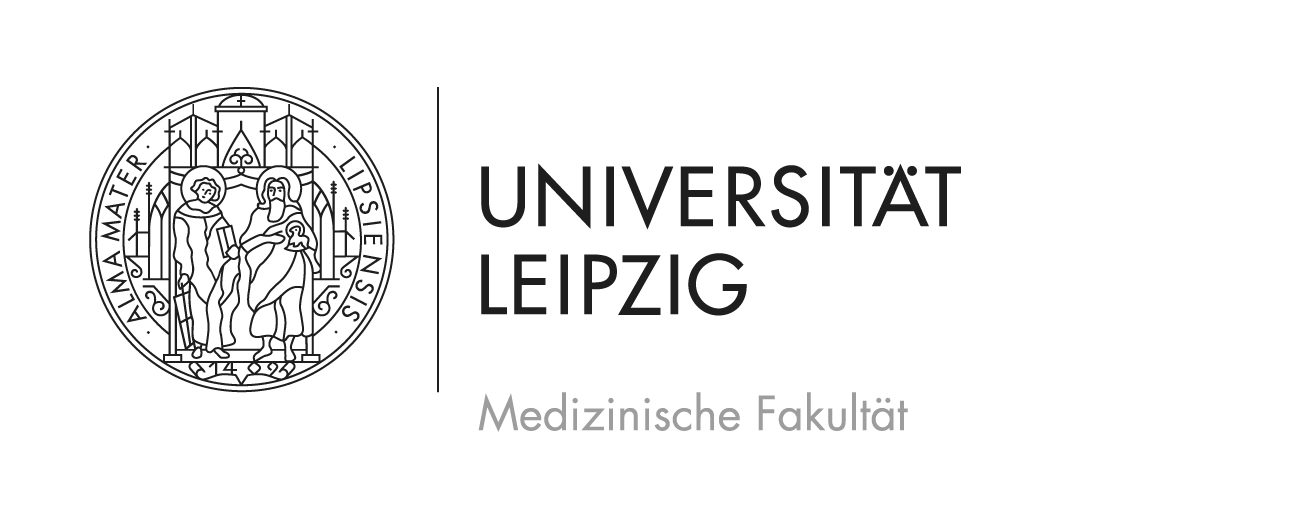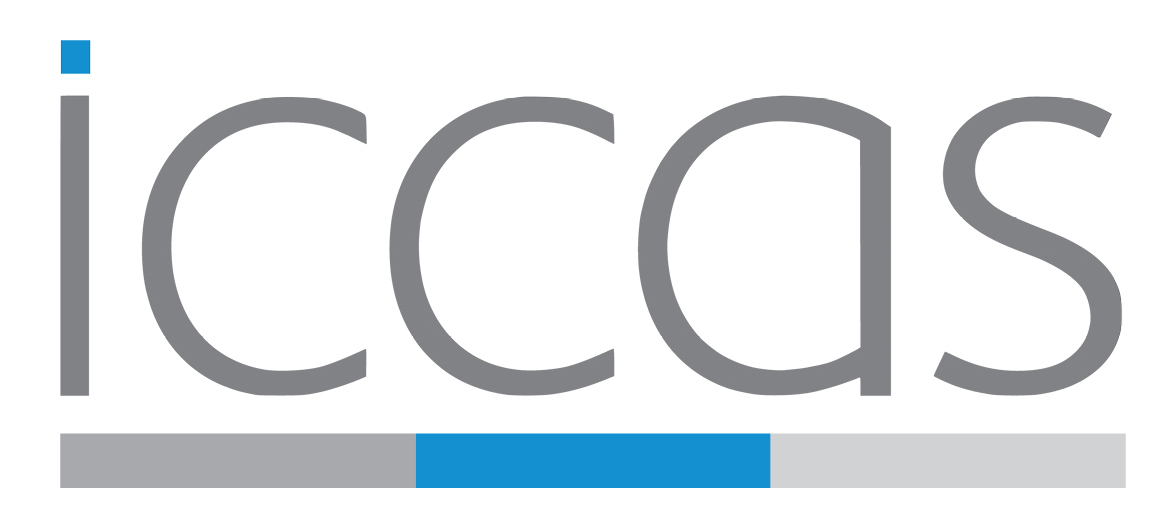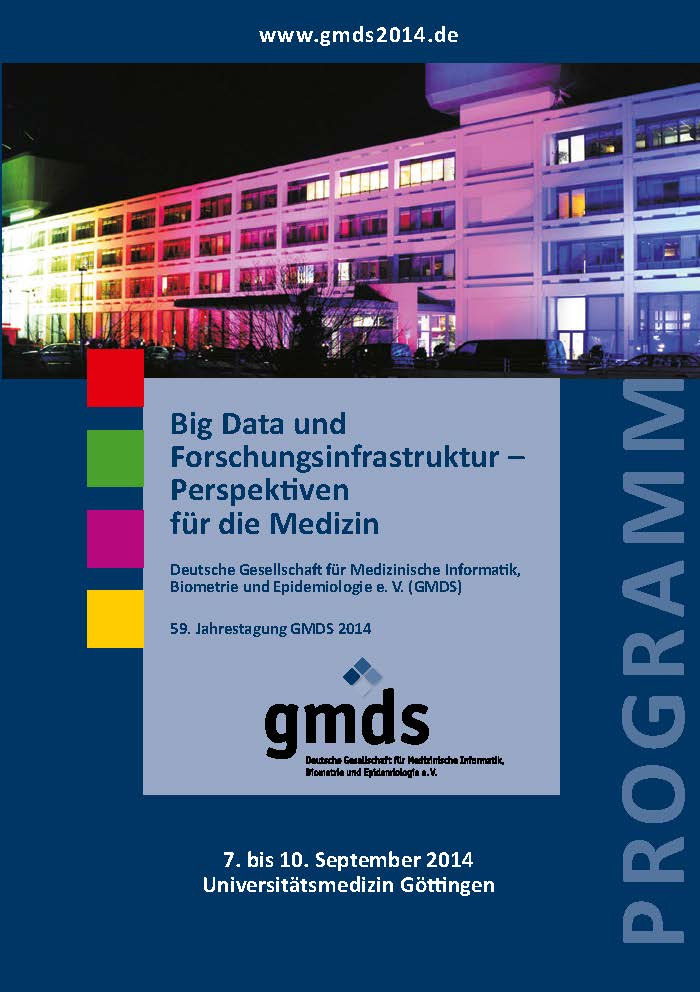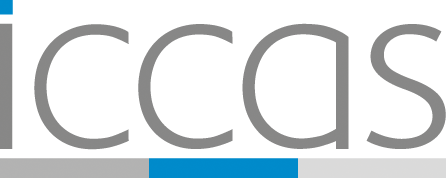22.10.2014
 Studienaufenthalt im Inselspital und am ARTORG Center Bern
Studienaufenthalt im Inselspital und am ARTORG Center Bern
Erst kürzlich beendete Dr. med. Patrick Dubach vom Inselspital Bern seine gastwissenschaftliche Tätigkeit am ICCAS. Nun bereitete er Bernhard Glaser aus der Forschungsgruppe MAI bei seinem vierwöchigen Studienaufenthalt im Inselspital und am ARTORG Center for Biomedical Engineering Research der Universität Bern einen herzlichen Empfang.
Glaser führte im Inselspital eine Studienreihe im Rahmen seines neu entwickelten Trainingssystems für instrumentierende Personen im Operationssaal durch. Der so genannte „Nosco Trainer“ wurde von OP-Mitarbeitern des dortigen HNO-Bereiches getestet und anschließend im Rahmen einer Multi-Zentren-Studie beurteilt. Das Feedback der Probanden war durchweg positiv. Demnach besteht bei der Ausbildung von OP-Personal in der Schweiz durchaus Bedarf an einem solchen Trainingssystem. Am ARTORG Center bekam Glaser Einblicke in die Arbeit der Forschungsgruppe „Image Guided Surgery“.
Die Aufgeschlossenheit der Schweizer Kollegen gegenüber dem Projekt lässt auf weitere Zusammenarbeiten hoffen. Eine Veröffentlichung der aktuellen Studienergebnisse ist bereits in Arbeit.
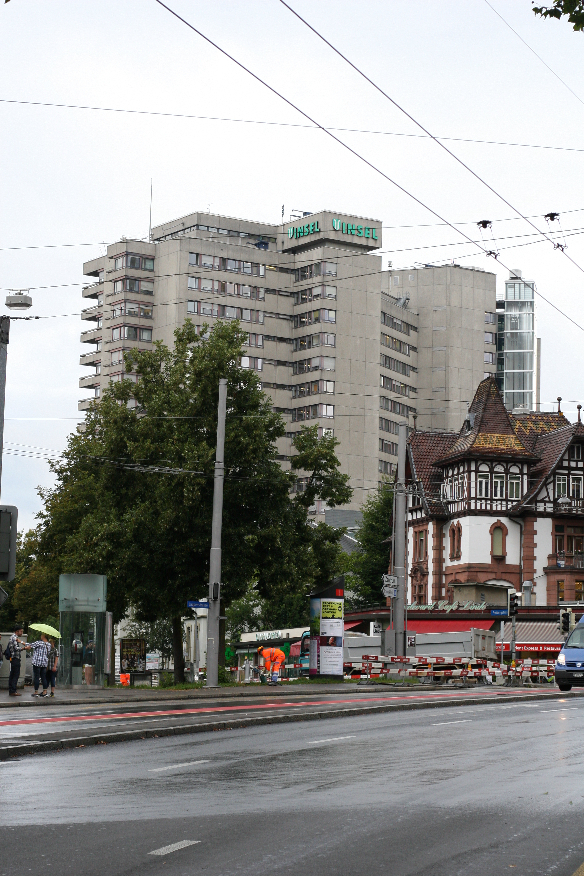 22 October 2014
22 October 2014
It was only recently, that Dr. med. Patrick Dubach from Inselspital Bern finished his activities as guest researcher at ICCAS. Now, he gave Bernhard Glaser (MAI) a warm welcome during his study visit at Bern University Hospital and ARTORG Center for Biomedical Engineering Research.
Glaser carried out a study in the scope of his newly developed training system for those handling surgical instruments in the operation room. The so called “Nosco Trainer” was tested and afterwards rated in the framework of a multi-center study by the OR-personnel of the local ENT-department. The feedback of the probands was consistently positive. Thus, there is a need for such a training system in the education of Swiss-OR-staff. At ARTORG Center, Glaser was provided an insight into the work of the research group „Image Guided Surgery“.
The open mindness of the Swiss colleagues towards the project leads to the hope for further cooperation. A publication of the current study results is in progress.

16.10.2014
 Professor Andreas Melzer zum Direktor des ICCAS berufen
Professor Andreas Melzer zum Direktor des ICCAS berufen
Since 1st September 2014, Prof. Dr. Andreas Melzer has been director of the Innovation Center Computer Assisted Surgery. He was appointed professor of computer-assisted surgery at the Faculty of Medicine at Leipzig University. With Professor Melzer ICCAS has gained a renowned and very experienced scientist in developing medical technologies and robotics for surgery, radiology and image-guided therapy.
Professor Melzer studied dentistry and medicine in Mainz and Tübingen. He qualified in Dentistry in 1989 and as Medical Doctor in 1993. During his professional career in clinic and science he has gained extensive experiences in the development of medical technologies and surgical instruments. Specialist subjects of the versatile researcher are interventional radiology and magnetic resonance imaging, image-guided robot technology and the further development of Nitinol devices. More than 100 patents and over 300 publications are based on his inventive talent. He is co-founder of several start-up companies in the medical technology business and consultant for major vendors on medicine. He also serves as organizer and chairman of various medical conferences.
Professor Melzer is the founding director of the Institute for Medical Science and Technology (IMSaT) of the Universities of Dundee and St. Andrews, Scotland. Since 2006, he has been holding the Chair of Medical Technology and leads the scientific work on Magnetic Resonance (MR)-guided intervention and therapy. At ICCAS he will research on MR-guided Focused UltraSound (MRgFUS) as a new method, which exemplary enables the implementation of a computer-assisted, image-guided diagnose and therapy.
14.10.2014
 ICCAS mit mehreren Programmbeiträgen auf der DGBMT 2014
ICCAS mit mehreren Programmbeiträgen auf der DGBMT 2014
Zur 48. Jahrestagung der Deutschen Gesellschaft für Biomedizinische Technik (DGBMT im VDE) steuerten mehrere Mitarbeiter des ICCAS interessante Programmbeiträge bei.
Dr. Kerstin Denecke (DPM) sprach in einem begeistert aufgenommenen Vortrag über Apps-Entwicklungen zur Unterstützung der mobilen Gesundheitsversorgung. Damit einhergehende regulatorische Anforderungen sind für die Arbeit am Digitalen Patientenmodell bedeutend, da Anwendungen später auch auf Tablets o.ä. bereitgestellt werden sollen.
Jens Meier (MAI) referierte über das Vorgehen zur Standardisierung des Arbeitsablaufes der onkologischen Anamnese in der HNO-Abteilung des UKL und stellte zugehörige Studienergebnisse vor. Diese weisen eine signifikant höhere Informationsdichte und -qualität in der neuen elektronischen Patientenakte nach.
Marianne Maktabi (MAI) trug in einer CURAC-Sondersitzung ihre Forschungsergebnisse zu Konzepten und Anforderungen eines klinikweiten Kontrollzentrums für Operationsräume vor. Für sie war die Thematik der Vernetzung des Krankenhauses ein wesentlicher Diskussionspunkt.
Dr. Claire Chalopin (DPM) ging in ihrer Posterpräsentation auf die Entwicklung eines Tools ein, mit dessen Hilfe der Neurochirurg durch die Differenzierung von Gefäßsegmenten mögliche Tumorreste erkennt. Das System basiert auf Ultraschalldaten, die während der OP gewonnenen werden.
Der Posterbeitrag von Max Rockstroh (MAI) handelte von der automatischen Erfassung der Nutzungsinformationen verschiedener Medizingeräte (z.B. Navigation, Mikroskop, Ultraschall) über Videosignale. Der Nutzer muss dafür weder in die Geräte, noch in den OP-Vorgang eingreifen.
Die im Kongresscenter Hannover stattgefundene Konferenz wandte sich in diesem Jahr vor allem dem zunehmend komplexen Umfeld von Biomedizinischer Technik zu, unter verstärktem Einbezug klinischer Themen. Neben dem Knüpfen und Festigen von Kontakten, ermöglichte das breite Themenspektrum lehrreiche Blicke über die eigenen Forschungsgrenzen hinaus.
 14 October 2014
14 October 2014
At the 48th Annual Conference of the German Society for Biomedical Engineering (DGBMT 2014), several ICCAS employees contributed interesting lectures.
Dr. Kerstin Denecke (DPM) spoke about the development of apps supporting the mobile health care. The lecture was met with great enthusiasm. Jens Meier reported about “Standardization of ENT Oncological Anamnesis and Evaluation using Levenshtein Distance Measure”. At a special CURAC-session, Marianne Maktabi (MAI) submitted her research findings on concepts and requirements for an advanced clinicwide Operating Room Control Center. Dr. Claire Chalopin (DPM) gave a poster presentation on “Vascular structure tracking in intraoperative 3D ultrasound data during brain tumor resection”.The poster contribution of Max Rockstroh (MAI) dealt with the “Approach to the detection of the use of medical devices based on the analysis of video stream”.
This year conference which took place at Hannover Congress Center, primarily addressed the increasingly complex environment of biomedical engineering by involving more clinical topics. The participants established and strengthened contacts and enjoyed instructive looks beyond their own research borders through the wide range of issues.
01.10.2014
 Philipp Liebmann scheidet aus dem ICCAS-Team
Philipp Liebmann scheidet aus dem ICCAS-Team
Für Philipp Liebmann begann die berufliche Tätigkeit am ICCAS im August 2007 mit der Aufnahme des Projektes „Softwareschnittstellen für modulare modellbasierte chirurgische Assistenzsysteme“. Darin beschäftigte sich der Informatiker (MSc) mit Erweiterungen des DICOM-Standards im Teilbereich der Standardisierungen für die Chirurgie. Unter Anleitung von Prof. Heinz U. Lemke arbeitete er seit 2011 im Forschungsfeld „Standards“ (STD) an der Weiterentwicklung von Standardisierungen für das klinische Umfeld. Zu den Erfolgen der STD-Gruppe, an denen Liebmann maßgeblich beteiligt war, gehört die Gründung einer „Integrating the Healthcare Enterprise (IHE) – Domäne für den Bereich der Chirurgie. Diese gilt als Voraussetzung für die einheitliche Verwendung etablierter Standards zur Verbesserung des elektronischen Datenaustausches zwischen IT-Systemen im Gesundheitswesen. Es folgten neue IHE-Profile für die Chirurgie. Über Konferenzbeiträge und seine Tätigkeit als Sekretär der DICOM-Working Group 24 sorgte Liebmann für die internationale Präsenz der ICCAS-Projekte.
Philipp Liebmann verabschiedete sich zum 30. September aus dem ICCAS-Team, bevor die Forschungsinitiativen der Nachwuchsgruppe Standards am Ende des Jahres auslaufen. Sein zukünftiger Arbeitsplatz befindet sich in einem führenden Unternehmen für High-End Monitorlösungen im Anwendungsbereich medizinische Bildgebung. Das ICCAS bedankt sich bei dem langjährigen Mitarbeiter für seine Einsatzbereitschaft und wünscht ihm für den weiteren Lebensweg alles Gute!
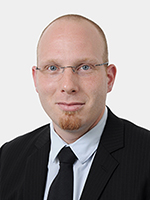 01 October 2014
01 October 2014
Philipp Liebmann’s professional career at the ICCAS began with the project work on “Software interfaces for modular model-based surgical assistance systems” in 2007. There, the computer scientist (MSc) dealt with extensions of the DICOM-standard in the area of standardization for surgery. Since 2011, he worked under the direction of Prof. Heinz U. Lemke on further developments of standardizations for the clinical environment in the research field “Standards” (STD). One main achievement of the STD-group in which he was significantly involved was the establishment of an Integrating the Healthcare Enterprise (IHE) – domain “Surgery” as a prerequisite for the improvement of the electronic data exchange between IT systems in healthcare. New IHE profiles for surgery followed. At conferences and through his work as secretary of the DICOM Working Group 24 Liebmann ensured the international presence of the ICCAS-projects.
Philipp Liebmann took leave of the ICCAS-team on 30th September, before the research initiatives of the STD-group will expire at the end of this year. His new workplace is located in one of the leading companies for high end display solutions for medical imaging. The ICCAS thanks its colleague for his long-standing commitment and wishes him all the best for the future.
25.09.2014
 Workshop-Beiträge auf der MICCAI 2014
Workshop-Beiträge auf der MICCAI 2014
M2CAI – der „Workshop on Modeling and Monitoring of Computer Assisted Interventions“ ist Teil des umfangreichen Rahmenprogramms der „International Conference on Medical Image and Computer Assisted Intervention“ (MICCAI), auf der das ICCAS seit Jahren mit Beiträgen zu Gast ist. Auf der diesjährigen Veranstaltung, die Mitte September am Massachusetts Institute of Technology in Boston (USA) stattfand, stellten Bernhard Glaser (MAI) und Stefan Franke (MAI) ihre Forschungsarbeiten vor. Der Workshop bot breit gefächerte Beiträge zur Analyse, Modellierung und Anwendung chirurgischer Workflows.
Bernhard Glaser präsentierte die Ergebnisse seiner Untersuchungen zum Thema “Eye-Tracking Analysis of Scrub Nurse Viewing”. Gegenstand der Analyse waren die Blickachsen instrumentierender Personen im OP, um primäre Informationsquellen und Interaktionsmuster zu identifizieren.
Stefan Franke referierte über “Online Generation of Multi-Perspective Surgical Situation Descriptions”. Das Projekt beschäftigt sich mit der Darstellung der verschiedenen Sichten auf einen laufenden Operationsprozess. Dafür werden mehrere mathematische Modelle des OP-Ablaufs miteinander kombiniert. Anhand der ständig ausgewerteten und angepassten Daten, erhält der Chirurg ein umfassenderes Bild über den aktuellen Zustand des Patienten in jeder OP-Phase und kann gezielter und schneller reagieren.
M2CAI – the „Workshop on Modeling and Monitoring of Computer Assisted Interventions“ is part of the extensive framework program of the „International Conference on Medical Image and Computer Assisted Intervention“ (MICCAI), at which the ICCAS has been guest for years. At this year’s event, which took place at Massachusetts Institute of Technology in Boston (USA), Bernhard Glaser (MAI) and Stefan Franke (MAI) presented their research work. The workshop offered a wide variety of contributions on analysis, modeling and application of surgical workflows.
Bernhard Glaser presented results of his investigation on “Eye-Tracking Analysis of Scrub Nurse Viewing”. The subjects of the analysis were visual axes of people who have to handle surgical instruments to identify primary sources of information and interaction patterns. Stefan Franke gave a lecture on “Online Generation of Multi-Perspective Surgical Situation Descriptions”. The project deals with the representation of various views of the ongoing operational process. Several mathematical models of the surgical process are therefore combined. By means of the constantly evaluated and adapted data the surgeon receives a more comprehensive view of the current patient status in each operating phase and can react faster and more selective.
18.09.2014
 Dr. Kerstin Denecke leitete Workshop auf VPH Conference 2014
Dr. Kerstin Denecke leitete Workshop auf VPH Conference 2014
17. September 2014
Wenn aller zwei Jahre die Virtual Physiological Human-Community auf ihrer Konferenz zusammentrifft, werden Methoden und Technologien thematisiert, die eine gemeinsame Betrachtung des menschlichen Körpers über virtuelle Modelle von mechanischen, physiologischen und biochemischen Abläufen ermöglichen.
In diesem Jahr trugen Dr. Kerstin Denecke (DPM) und Jan Gaebel (DPM) über einen eigenen Workshop zum Wissensaustausch bei. Der Workshop mit dem Titel „Models for surgical decision support“ begann mit dem Vorstellen des Digitalen Patientenmodells, wie es momentan am ICCAS am Entstehen ist. Ca. 20 Teilnehmer belebten den produktiven Erfahrungsaustausch, der über den aktuellen Stand in der digitalen Patientenmodellierung für die chirurgische Entscheidungsunterstützung Auskunft gab. Gemeinsam wurden Herausforderungen und Anforderungen diskutiert, die die Gewinnung und Integration geeigneter Informationen und medizinischen Wissens für solche Modelle betreffen. Die Wissenschaftler knüpften Kontakte und sammelten wichtige Informationen, um neue Ziele für die weitere Projektarbeit zu definieren.
[nggallery id=17]17 September 2014
Every two years, the Virtual Physiological Human-Community comes together at its conference. Then, methods and technologies are picked out as a central theme, which enable a common view of the human body by using virtual models of mechanical, physiological and biochemical processes.
This year, Dr. Kerstin Denecke (DPM) and Jan Gaebel (DPM) contributed to the knowledge exchange through the organization of an own workshop. The workshop entitled „Models for surgical decision support” started with a presentation of the Digital Patient Model – as it is currently in progress at the ICCAS. About 20 participants encouraged the productive exchange of experiences, which informed about the current state of the art in digital patient modeling for surgical decision support. Challenges and requirements were discussed together relating to the acquisition and integration of appropriate information and the medical knowledge for such models. The scientists established contacts and gathered important information to define new targets for their further project work.
[nggallery id=17]
16.09.2014
 ICCAS mit Beiträgen auf der 13. CURAC Jahrestagung
ICCAS mit Beiträgen auf der 13. CURAC Jahrestagung
Die Deutsche Gesellschaft für Computer- und Roboterassistierte Chirurgie veranstaltete ihre diesjährige Jahrestagung in den Räumlichkeiten des Klinikums rechts der Isar der Technischen Universität München. Dort tauschten Anwender und Wissenschaftler der Bereiche Chirurgie, Informationstechnik sowie Ingenieurwissenschaften deutscher Institute ihre aktuellen Forschungsergebnisse aus und diskutierten neue Ziele. An dem vielseitigen Programm, das „Synergie durch Interdisziplinarität“ anstrebte, nahmen Prof. Thomas Neumuth, Jens Meier, Bernhard Glaser und Max Rockstroh vom Forschungsfeld MAI teil.
CURAC-Beiratsmitglied Prof. Neumuth übte den Vorsitz der Fachsitzung „Patientenmodelle und Workflow I“ aus. In dieser referierte Jens Meier zum Thema „Aggregation patientenspezifischer Informationen zur Unterstützung der onkologischen Hals-, Nasen-, Ohren Chirurgie“. Bernhard Glaser präsentierte seine „Konzeption einer Kommunikationsarchitektur für ein OP-Instrumententisch-Simulationssystem“ in der Session „Simulation, Training und Ausbildung“.
This year, the German Society for Computer and Roboter-Assisted Surgery hold its annual meeting in the premises of the Klinikum rechts der Isar – Technische Universität München. There, users and scientists of the areas surgery, information technology and engineering from German institutes exchanged their current research results and discussed new targets. Prof. Thomas Neumuth, Jens Meier, Bernhard Glaser and Max Rockstroh took part at the varied program which aimed “Synergy through interdisciplinary”.
CURAC-board member Prof. Neumuth chaired the session “Patient Models and Workflow”. In this, Jens Meier spoke about the theme “Aggregation of patient specific information to support the oncologic throat-, nose-, ear surgery. Bernhard Glaser presented his “Conception of a communication architecture for an OR-instrument table-simulation system” in the session “Simulation, Training and Education”.
12.09.2014
 Forschungsaustausch auf der GMDS-Jahrestagung in Göttingen
Forschungsaustausch auf der GMDS-Jahrestagung in Göttingen
11. September 2014
Die 59. Jahrestagung der Gesellschaft für Medizinische Informatik, Biometrie und Epidemiologie e.V. (GMDS) versammelte in diesem September wieder zahlreiche Wegbereiter der Digitalisierung im Gesundheitsbereich. Die vom BMBF als Veranstaltung des Wissenschaftsjahres 2014 deklarierte Jahrestagung stand ganz im Zeichen von „Big Data und Forschungsinfrastruktur – Perspektiven für die Medizin“.
Aus dem ICCAS nahmen fünf Wissenschaftler, darunter GMDS-Präsidiumsmitglied Prof. Thomas Neumuth, teil. Referate hielten Dr. Kerstin Denecke (DPM) über Digitale Patientenmodelle zur Entscheidungsfindung in der Modellbasierten Medizin sowie Yihan Deng (DPM) zum Thema „Summarization of EHR Using Information Extraction, Sentiment Analysis and Word Clouds“.
11 September 2014
This September, the 59th Annual Meeting of the German Society for Medical Computer Science, Biometry and Epidemiology (GMDS) e.V. brought together again numerous pioneers of the digitalization in the healthcare sector. Declared from the BMBF as an Event of the Year of Science 2014 the annual meeting was entirely dedicated to the motto “Big Data and research infrastructure – perspectives for medicine.”
Five scientists from the ICCAS took part, among them GMDS-committee member Prof. Thomas Neumuth. Presentations were given by Dr. Kerstin Denecke (DPM) on digital patient model for decision support in model based medicine and Yihan Deng(DPM) on the topic “Summarization of EHR using information extraction, sentiment analysis and word clouds“.

09.09.2014
 Präsentationen auf der MIE 2014
Präsentationen auf der MIE 2014
09 September 2014
The ICCAS participated at the 25th European Medical Informatics Conference (MIE 2014) with two conference contributions from the research field Digital Patient- and Process Model. Dr. Kerstin Denecke and Yihan Deng traveled to Instanbul to present their concepts for analysis and modeling of patient data.
Dr. Denecke’s lecture dealt with the analysis of the linguistic features of medical weblogs, particularly against the background including such information in a digital patient model. Deng spoke about the visualization of unstructured patient data for the evaluation of diagnoses and courses of treatment.
[nggallery id=15]

 Karl-Heinz-Höhne-Preis und Dissertation – Frank Heckel gleich zweimal erfolgreich
Karl-Heinz-Höhne-Preis und Dissertation – Frank Heckel gleich zweimal erfolgreich
09 September 2014
As in 2012, a researcher of the ICCAS could receive the award for the 2nd place of the Karl-Heinz-Höhne-Preis (MedVis-Award). Frank Heckel got the honor, which is awarded every two years from the Visual Computing for Biology and Medicine (VCBM) Group, for his scientific work on interactive post-correction of automatically generated segmentation results in oncology. The computer scientist from the Fraunhofer-Institut für Bildgestützte Medizin (MEVIS) has been working as guest researcher at the ICCAS for over one year. Here, he analyzes image qualities for the collaborative project OR.NET and supports the cooperation between the ICCAS and the Fraunhofer MEVIS within the scope of the OR.NET-initiatives.
Four days after the award ceremony, Frank Heckel could celebrate another professional success. He defended his doctoral thesis entitled “Sketch-Based Interactive Segmentation and Segmentation Editing for Oncological Therapy Monitoring“ at the Jacobs University Bremen. In this work, he dealt with methods for more accurate and reproducible volumetric measurements of tumors in computer tomography data. The procedures were developed to support radiologists evaluating the effective of chemotherapy. Heckel’s success at the MedVis-Award is based on findings of the dissertation.
The ICCAS congratulates to the outstanding achievements and looks forward to another year, from now on with Dr. Frank Heckel in the research team.
[nggallery id=16]
